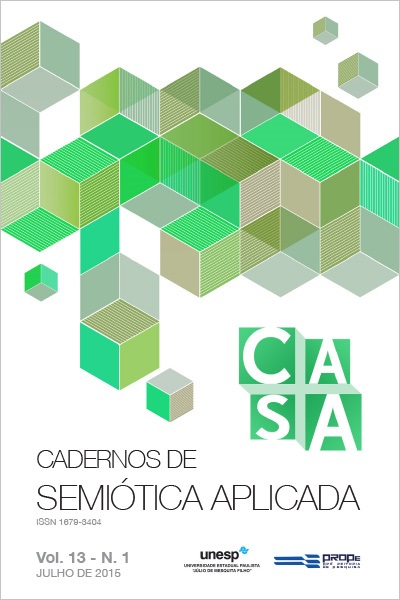A SEMIÓTICA TENSIVA: UMA TEORIA IMANENTE DO AFETO
DOI:
https://doi.org/10.21709/casa.v13i1.7607Palabras clave:
Semiótica, Imanência, Transcendência, Afeto, Epistemologia, RealidadeResumen
Este texto avança reflexões que buscam defender a hipótese de uma epistemologia do conhecimento humano, nomeada epistemologia discursiva. De estatuto imanente à linguagem, vem sendo preparada para rivalizar com a epistemologia das ciências naturais, via de regra realista, e com a epistemologia das filosofias, mormente transcendental. O texto é o quarto de um concerto de ideias, cujos três primeiros movimentos foram publicados, ou estão em vias de publicação, todos a procurar fundamentar tal epistemologia. Nascida da proposição do princípio do arbitrário e da Semiologia dele derivada, por F. Saussure, primeiro movimento, foi balizada pelo princípio da imanência da teoria da linguagem de L. Hjelmslev, segundo movimento, e edificada pelas proposições de A. J. Greimas em sua teoria semiótica, terceiro movimento. Seu progresso e eficácia heurística podem ser atestados na teoria da semiótica tensiva de Cl. Zilberberg, justamente porque avança um conhecimento sobre a região que mais desafia a imanência: a região do afeto, da sensibilidade. Geralmente tida por indócil à formalização, à estrutura, tal região é suposta como transcendente a uma gramática imanente do afeto. A semiótica tensiva de Zilberberg, integralmente subordinada à tradição linguística e ao princípio da imanência hjelmsleviana e greimasiana, ilustra a governança dessa epistemologia discursiva.
Descargas
Publicado
Número
Sección
Licencia
Los autores de los trabajos aprobados concuerdan en ceder a CASA los derechos no exclusivos de publicación, permaneciendo libres para colocar a disposición sus textos en otros medios desde que sea mencionada la publicación de la primera versión en la revista. Autorizan, además, a la revista a ceder su contenido para reproducción en indexadores, repositorios y similares. Es vedada la traducción para otro idioma sin la autorización escrita del Editor, oída la Comisión Editorial. La responsabilidad del contenido de los artículos es exclusiva de los autores.

